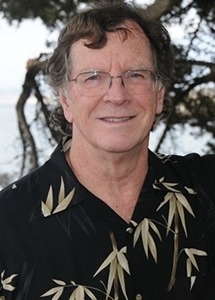Patrick Cotter
Adjunct Faculty

- pcotter@middlebury.edu
Patrick Cotter is an Adjunct Professor in the MIIS International Environmental Policy program. He has more than 31 years of experience as an environmental scientist and international environmental specialist in managing domestic and international ocean programs for the United States Government. He has managed technical groups to support protection of coastal watersheds, reduction of coastal and marine pollution, implementation of large controversial port dredging projects, and protection of living marine resources. Mr. Cotter has also worked with senior governmental officials to develop sound environmental policies on global maritime issues, regional pollution prevention programs, and national ocean programs.
“I am excited about the opportunity to inform MIIS students about global and regional activities being taken by the United States and fellow Contracting Parties to international treaties to prevent, reduce, and control marine pollution from land and marine sources. My goal is to bring real-life experiences to the classroom and show MIIS students how nations develop sustainable solutions to complex environmental issues. Students will gain first-hand knowledge of what might be expected of them as professionals working on the development of international environmental policies. I look forward to working with CBE professors and staff to produce high-quality results for MIIS students.”
Mr. Cotter worked for the U.S. Environmental Protection Agency’s (EPA) Office of International and Tribal Affairs on the London Convention/Protocol for ocean dumping, the Convention for the Prevention of Pollution from Ships (MARPOL), the Convention for the Protection of the Marine Environment in the Wider Caribbean Region (Cartagena Convention), and other marine pollution treaties under the jurisdiction of the United Nations. During his career at EPA, Mr. Cotter was awarded a Gold Medal for Exceptional Service, a Silver Medal for Superior Service, and five Bronze Medals for Commendable Service.
“I am passionate about employing collaborative teamwork and respectful diplomacy, supported by the best scientific information, to protect human health, sensitive coastal ecosystems, and significant ocean resources from the impacts of land-based and marine-based pollution.”
Areas of Interest
- Marine pollution
- Marine policy
- Marine science
- International marine organizations
Programs
Academic Degrees
McGill University, Montreal, Canada:
Master of Science, Oceanography, 1984
University of Texas, Austin, TX:
Bachelor of Science, Biology-Marine Option, 1976
Publications
Commission for Environmental Cooperation, 2003, Strategic Plan for North American Cooperation in the Conservation of Biodiversity
International Maritime Organization, 2014, The London Protocol: What It Is and How to Implement It.
